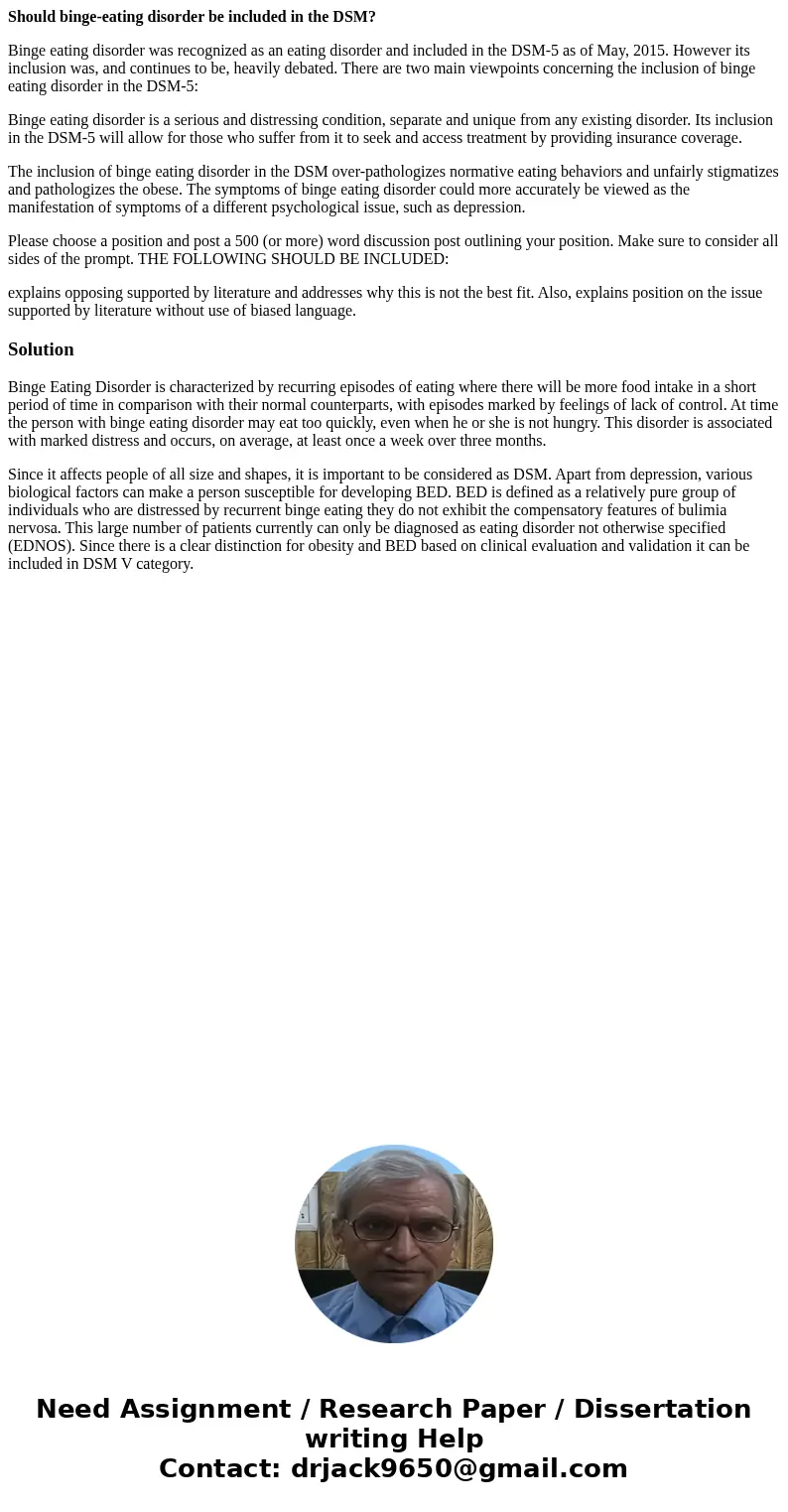Should bingeeating disorder be included in the DSM Binge eat
Should binge-eating disorder be included in the DSM?
Binge eating disorder was recognized as an eating disorder and included in the DSM-5 as of May, 2015. However its inclusion was, and continues to be, heavily debated. There are two main viewpoints concerning the inclusion of binge eating disorder in the DSM-5:
Binge eating disorder is a serious and distressing condition, separate and unique from any existing disorder. Its inclusion in the DSM-5 will allow for those who suffer from it to seek and access treatment by providing insurance coverage.
The inclusion of binge eating disorder in the DSM over-pathologizes normative eating behaviors and unfairly stigmatizes and pathologizes the obese. The symptoms of binge eating disorder could more accurately be viewed as the manifestation of symptoms of a different psychological issue, such as depression.
Please choose a position and post a 500 (or more) word discussion post outlining your position. Make sure to consider all sides of the prompt. THE FOLLOWING SHOULD BE INCLUDED:
explains opposing supported by literature and addresses why this is not the best fit. Also, explains position on the issue supported by literature without use of biased language.
Solution
Binge Eating Disorder is characterized by recurring episodes of eating where there will be more food intake in a short period of time in comparison with their normal counterparts, with episodes marked by feelings of lack of control. At time the person with binge eating disorder may eat too quickly, even when he or she is not hungry. This disorder is associated with marked distress and occurs, on average, at least once a week over three months.
Since it affects people of all size and shapes, it is important to be considered as DSM. Apart from depression, various biological factors can make a person susceptible for developing BED. BED is defined as a relatively pure group of individuals who are distressed by recurrent binge eating they do not exhibit the compensatory features of bulimia nervosa. This large number of patients currently can only be diagnosed as eating disorder not otherwise specified (EDNOS). Since there is a clear distinction for obesity and BED based on clinical evaluation and validation it can be included in DSM V category.

 Homework Sourse
Homework Sourse